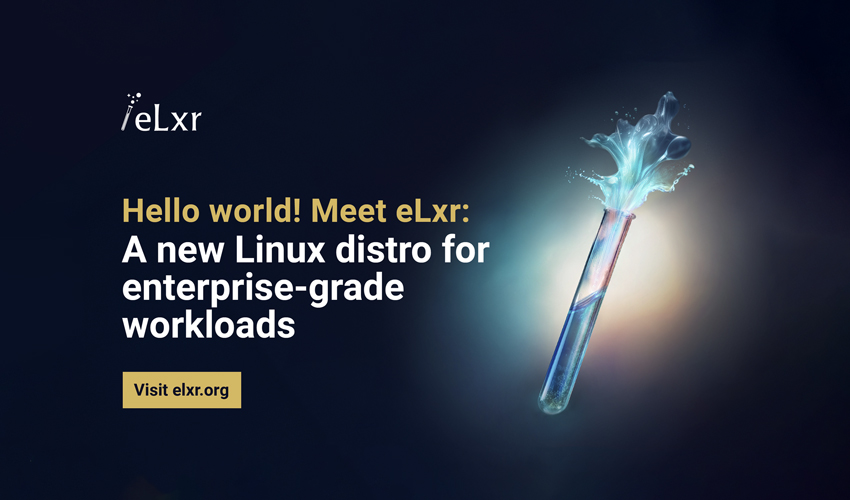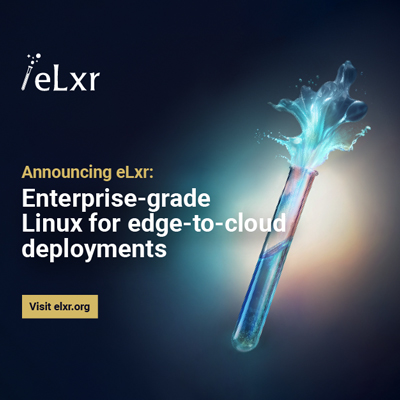6.10.5: stable
Posted: 2024-08-14 13:40:41 Source: https://www.kernel.org/
| Version: | 6.10.5 (stable) |
|---|---|
| Released: | 2024-08-14 |
| Source: | linux-6.10.5.tar.xz |
| PGP Signature: | linux-6.10.5.tar.sign |
| Patch: | full (incremental) |
| ChangeLog: | ChangeLog-6.10.5 |
Is Gaming On The Ryzen 9 9950X Better On Linux Than On Windows?
Posted: 2024-08-14 13:11:33 Source: https://www.youtube.com/watch?v=l8W2JB4nJzY
6.6.46: longterm
Posted: 2024-08-14 11:59:13 Source: https://www.kernel.org/
| Version: | 6.6.46 (longterm) |
|---|---|
| Released: | 2024-08-14 |
| Source: | linux-6.6.46.tar.xz |
| PGP Signature: | linux-6.6.46.tar.sign |
| Patch: | full (incremental) |
| ChangeLog: | ChangeLog-6.6.46 |
6.1.105: longterm
Posted: 2024-08-14 11:53:19 Source: https://www.kernel.org/
| Version: | 6.1.105 (longterm) |
|---|---|
| Released: | 2024-08-14 |
| Source: | linux-6.1.105.tar.xz |
| PGP Signature: | linux-6.1.105.tar.sign |
| Patch: | full (incremental) |
| ChangeLog: | ChangeLog-6.1.105 |
next-20240814: linux-next
Posted: 2024-08-14 04:55:56 Source: https://www.kernel.org/
| Version: | next-20240814 (linux-next) |
|---|---|
| Released: | 2024-08-14 |
Linux Mint 22 “Wilma” Xfce overview | Light, simple, efficient
Posted: 2024-08-13 16:51:23 Source: https://www.youtube.com/watch?v=xZ719RA3ehs
Evaluating Ubuntu Server and Oracle Linux: Which Operating System Excels in Database Management?
Posted: 2024-08-13 16:00:00 Source: https://www.linuxjournal.com/content/evaluating-ubuntu-server-and-oracle-linux-which-operating-system-excels-database-management

Introduction
In the realm of enterprise computing, selecting the optimal operating system (OS) for database management is critical to performance, security, and scalability. Two prominent contenders in this field are Ubuntu Server and Oracle Linux. Both offer unique benefits and are tailored to different kinds of enterprise needs. This article provides a comparison of both operating systems, focusing on their capabilities, performance, and suitability for database workloads.
Overview of Ubuntu Server
Ubuntu Server, developed by Canonical Ltd., is a free, open-source Linux distribution based on Debian. Widely recognized for its ease of use and robust performance, Ubuntu Server hosts websites, file servers, and, importantly, database servers. It supports major database systems like MySQL, PostgreSQL, and MongoDB, making it a versatile choice for various applications.
Key Features Relevant to Databases:- Stability and Updates: Ubuntu offers Long Term Support (LTS) versions that receive updates for up to five years, ensuring long-term stability.
- Community and Commercial Support: A vast community and options for professional support from Canonical cater to businesses of all sizes.
- Compatibility and Flexibility: Extensive compatibility with popular database management systems and cloud environments.
Overview of Oracle Linux
Oracle Linux, crafted by Oracle Corporation, is tailored for enterprise environments, offering a robust platform especially optimized for Oracle's own products, like Oracle Database. It stands out for its deep integration with Oracle's applications and is engineered for performance in demanding environments.
Key Features Relevant to Databases:- Optimized for Oracle Products: It provides a seamless environment for Oracle software, reducing compatibility issues and optimizing performance.
- Kernel Options: Oracle Linux users can choose between the Red Hat Compatible Kernel (RHCK) and Oracle's Unbreakable Enterprise Kernel (UEK), which is specifically tuned for Oracle products.
- Support Structure: Oracle offers comprehensive support services, which, while costly, provide significant value in enterprise settings.
Performance
Performance is a key differentiator when assessing the suitability of an OS for database workloads:
Distribution Release: Tails 6.6
Posted: 2024-08-13 12:34:33 Source: https://distrowatch.com/12215
The DistroWatch news feed is brought to you by TUXEDO COMPUTERS. The Amnesic Incognito Live System (Tails) is a Debian-based live DVD/USB with the goal of providing complete Internet anonymity. The project's latest release, Tails 6.6, is focused on fixing issues and improving the persistent storage experience. "Fixed problems: Persistent storage: Increase the maximum waiting time to 4 minutes....
next-20240813: linux-next
Posted: 2024-08-13 03:57:38 Source: https://www.kernel.org/
| Version: | next-20240813 (linux-next) |
|---|---|
| Released: | 2024-08-13 |
Get Ready for the New COSMIC Desktop: A Comprehensive Preview
Posted: 2024-08-12 20:30:03 Source: https://www.youtube.com/watch?v=TMZnZlKx0BA
Distribution Release: RebeccaBlackOS 2024-08-12
Posted: 2024-08-12 20:20:21 Source: https://distrowatch.com/12214
The DistroWatch news feed is brought to you by TUXEDO COMPUTERS. RebeccaBlackOS is a Debian-based live distribution which can be used to run Wayland desktop sessions. The project's latest release features a number of upgrades, including swapping out Qt5 for Qt6 and dropping support for 32-bit processors. "New in these ISOs since 2023-01-16: Only 64-bit ISOs are made as....
Linux Mint 22 “Wilma” Cinnamon Quick Overview #shorts
Posted: 2024-08-12 16:23:53 Source: https://www.youtube.com/watch?v=Z_qeYy8XqKk
Delivering Enterprise-Grade Linux for Edge-to-Cloud Deployments with eLxr
Posted: 2024-08-12 16:00:00 Source: https://www.linuxjournal.com/content/delivering-enterprise-grade-linux-edge-cloud-deployments-elxr

The eLxr project has launched its initial release of a Debian-based distribution that incorporates the intelligent edge capabilities of Debian, with plans to expand these for a streamlined edge-to-cloud deployment approach. eLxr is an open source, enterprise-grade Linux distribution designed to address the specific challenges of near-edge networks and workloads.
What Is the eLxr Project?
The eLxr project is a community-driven effort dedicated to expanding access to cutting-edge technologies for both enthusiasts and enterprise users seeking dependable and innovative solutions that scale from edge to cloud. The project produces and maintains an open source, enterprise-grade Debian-based distribution called eLxr that is user-friendly and fully honors the open source philosophy.
 The eLxr project's mission focuses on accessibility, innovation, and maintaining the integrity of open source software. Developing these advancements in an enterprise-grade Debian-based distribution ensures that users benefit from a freely available Linux distribution.
The eLxr project's mission focuses on accessibility, innovation, and maintaining the integrity of open source software. Developing these advancements in an enterprise-grade Debian-based distribution ensures that users benefit from a freely available Linux distribution.
By emphasizing ease of adoption alongside open source principles, eLxr aims to attract a diverse range of users and contributors who value both innovation and community-driven development, fostering collaboration and transparency and the spread of new technologies.
The eLxr project is implementing a robust strategy for building on Debian's ecosystem while also contributing back to it. As "Debian citizens," eLxr contributors submit innovations and improvements upstream, actively participating in the community's development efforts. This approach not only enhances eLxr's own distribution but also strengthens Debian by expanding its feature set and improving its overall quality.
The ability to release technologies at various stages of Debian's development cycle and to introduce innovative new content not yet available in Debian highlights eLxr's flexibility and responsiveness to emerging needs. Moreover, the commitment to sustainability ensures that contributions made by eLxr members remain beneficial to the broader Debian community over the long term.
A Unified Approach for Intelligent Deployments at the Edge
Modern technology demands agility and responsiveness to rapidly changing requirements and operational challenges. By integrating cutting-edge technologies from open source communities and technology companies into its distribution, the eLxr project enables users to leverage innovations that may not yet be widely distributed or easily accessible through other channels.
Ubuntu 24.10 to Include the Latest Linux Kernel
Posted: 2024-08-12 15:50:28 Source: http://www.linux-magazine.com/Online/News/Ubuntu-24.10-to-Include-the-Latest-Linux-Kernel
Ubuntu users have grown accustomed to their favorite distribution shipping with a kernel that's not quite as up-to-date as other distros but that changes with 24.10.
next-20240812: linux-next
Posted: 2024-08-12 04:11:34 Source: https://www.kernel.org/
| Version: | next-20240812 (linux-next) |
|---|---|
| Released: | 2024-08-12 |
DistroWatch Weekly, Issue 1083
Posted: 2024-08-12 00:20:18 Source: https://distrowatch.com/12213
The DistroWatch news feed is brought to you by TUXEDO COMPUTERS. This week in DistroWatch Weekly:
Review: TrueNAS 24.04.2 "SCALE"
News: Redox OS introduces a new web server, PipeWire exposes battery drain on Linux, Canonical changes its kernel release policy
Questions and answers: Linux distributions for smartphones
Released last week: IPFire 2.29 Core 187
Torrent corner: GhostBSD
Upcoming releases: Ubuntu 24.04.1, FreeBSD 13.4-BETA3
Opinion poll:....
6.11-rc3: mainline
Posted: 2024-08-11 21:27:14 Source: https://www.kernel.org/
| Version: | 6.11-rc3 (mainline) |
|---|---|
| Released: | 2024-08-11 |
| Source: | linux-6.11-rc3.tar.gz |
| Patch: | full (incremental) |
Ubuntu Will Start Shipping With the Latest Upstream Linux Kernel - Even Release Candidates
Posted: 2024-08-11 15:34:00 Source: https://news.slashdot.org/story/24/08/11/075217/ubuntu-will-start-shipping-with-the-latest-upstream-linux-kernel---even-release-candidates?utm_source=atom1.0mainlinkanon&utm_medium=feed
Here's a question from the blog OMG Ubuntu. "Ever get miffed reading about a major new Ubuntu release only to learn it doesn't come with the newest Linux kernel? "Well, that'll soon be a thing of the past." Canonical's announced a big shift in kernel selection process for future Ubuntu release, an "aggressive kernel version commitment policy" pivot that means it will ship the latest upstream kernel code in development at the time of a new Ubuntu release. Yes, even if that upstream kernel hasn't yet seen a formal stable release (and received the requisite newspaper-graphic-topped rundown on this blog). Which is a huge change. Currently, new Ubuntu releases include the most recent stable Linux kernel release at the time of the kernel freeze milestone in the Ubuntu development cycle. Here's the official announcement by Canonical's Brett Grandbois. "Ubuntu will now ship the absolute latest available version of the upstream Linux kernel at the specified Ubuntu release freeze date, even if upstream is still in Release Candidate status..." It is actually expected that Late Releases will be the exception rather than the norm and in most releases these guidelines will not be necessary as the upstream kernel will release with enough time for the Ubuntu kernel to stabilize. However, adopting a more aggressive kernel version commitment policy does require us to be prepared for a possible Late Release situation and therefore informing the community on what they can expect.
Read more of this story at Slashdot.
6.10.4: stable
Posted: 2024-08-11 10:58:21 Source: https://www.kernel.org/
| Version: | 6.10.4 (stable) |
|---|---|
| Released: | 2024-08-11 |
| Source: | linux-6.10.4.tar.xz |
| PGP Signature: | linux-6.10.4.tar.sign |
| Patch: | full (incremental) |
| ChangeLog: | ChangeLog-6.10.4 |
6.6.45: longterm
Posted: 2024-08-11 10:48:46 Source: https://www.kernel.org/
| Version: | 6.6.45 (longterm) |
|---|---|
| Released: | 2024-08-11 |
| Source: | linux-6.6.45.tar.xz |
| PGP Signature: | linux-6.6.45.tar.sign |
| Patch: | full (incremental) |
| ChangeLog: | ChangeLog-6.6.45 |